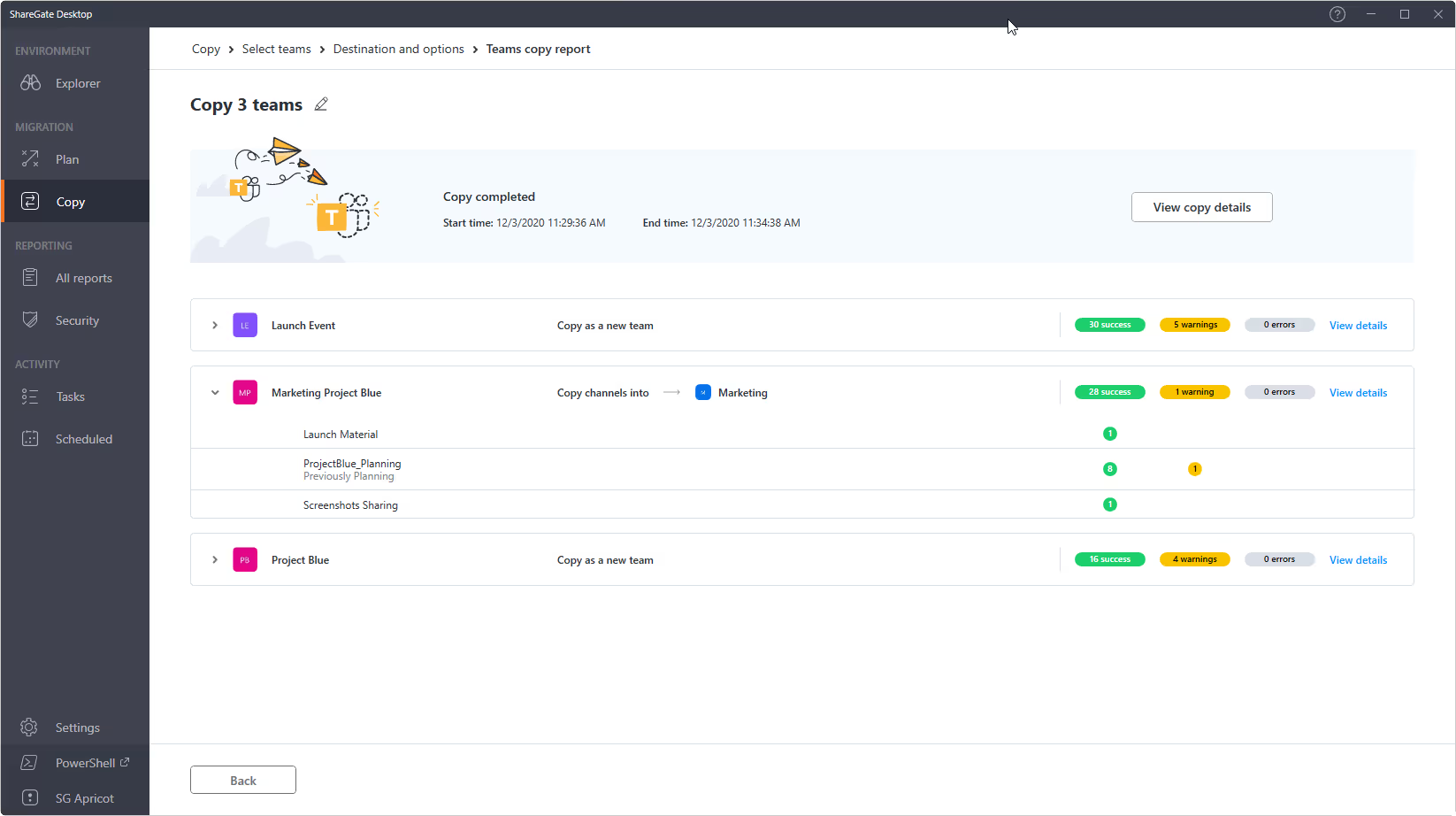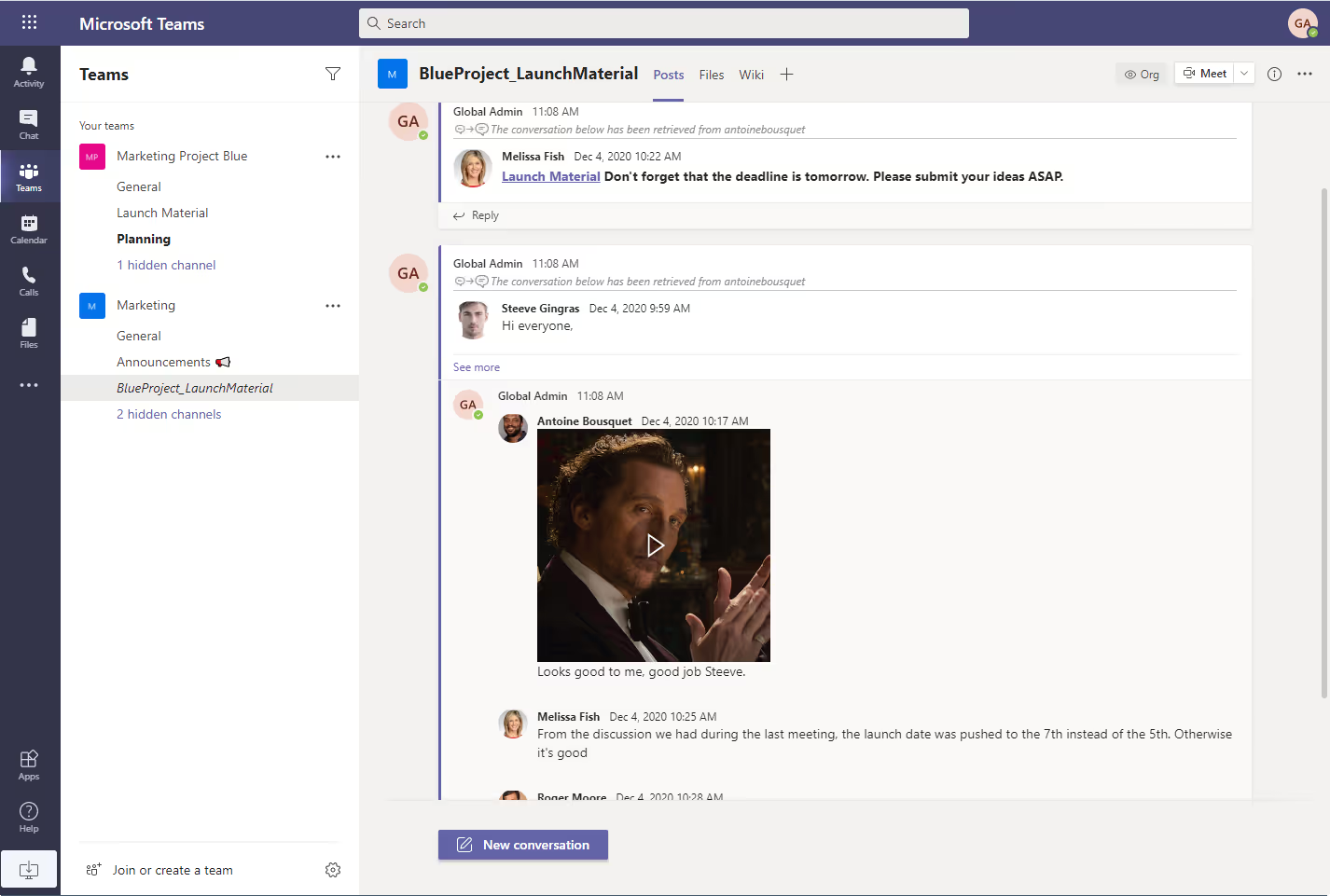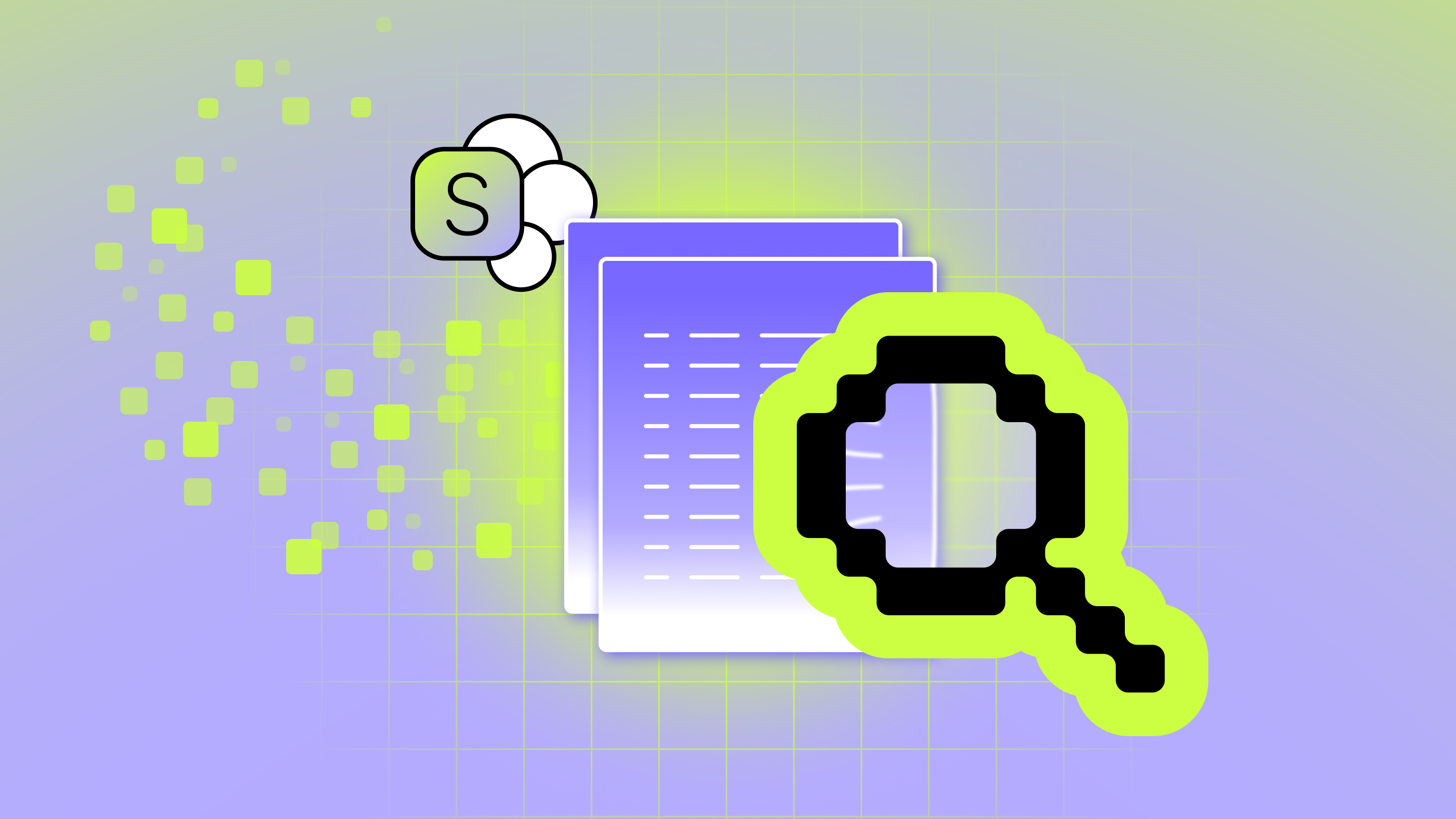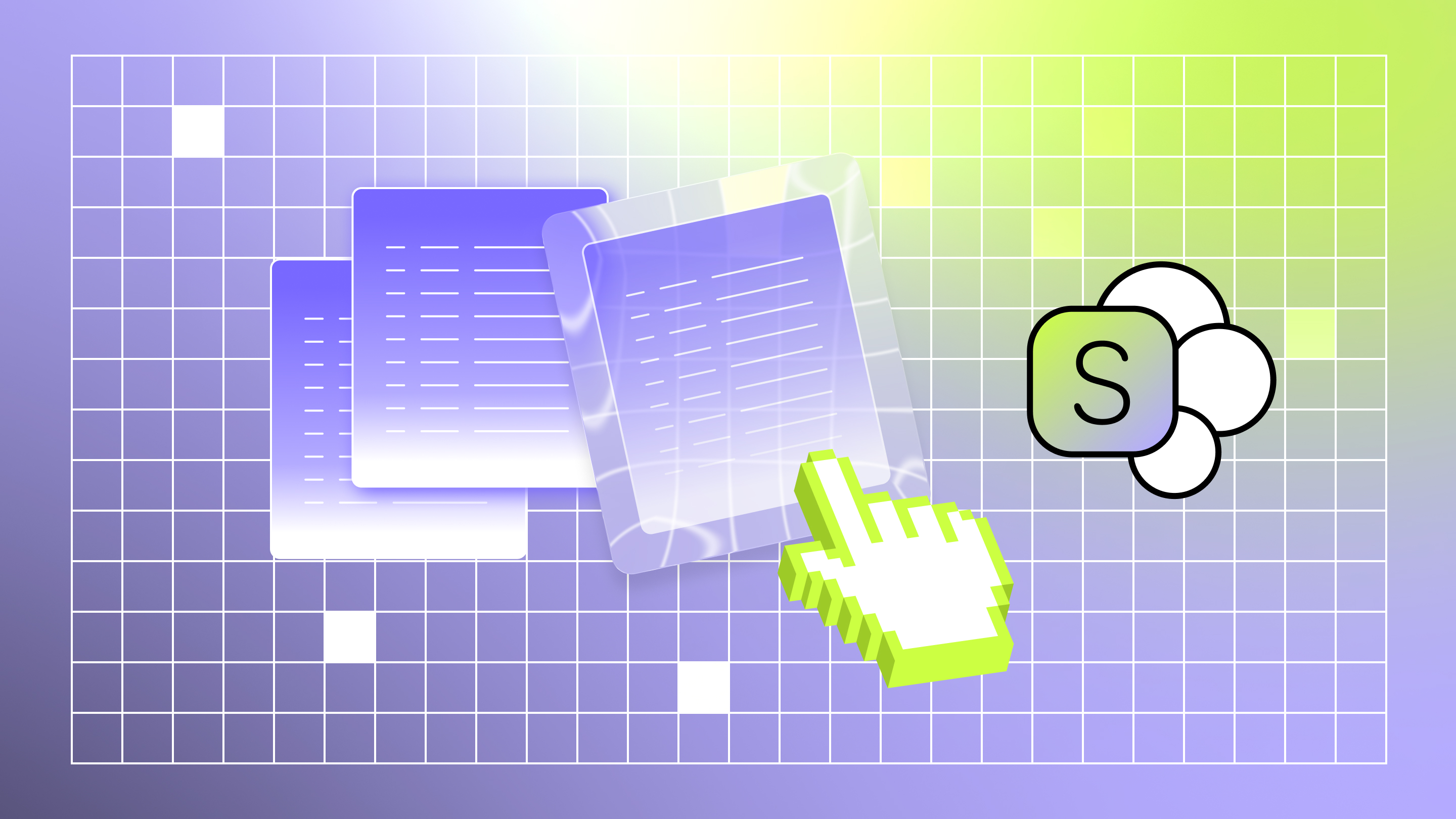Migrate Microsoft Teams channels from one team to another with ShareGate 14.0

Table of contents
With this release, you can now move exactly what you want, right where you need it. After bringing you tenant-to-tenant Teams migration earlier this year, we're now unlocking team-to-team channel migration.
With over 115 million daily active users—up from 75 million in April—Microsoft Teams has become an integral part of how we work, especially now that so many of us are working from home.
That’s why being able to easily organize and restructure Teams in a way that makes sense for how people collaborate and move within your organization is critical for employee productivity. As organizations change, whether it’s a small change like two teams merging or a big change like acquiring a new business, there is a real need for more flexibility in Teams so people can have access to what they need and collaborate seamlessly.
Thinking about migrating teams? Check out how the ShareGate SharePoint Migration tool compares to Microsoft's SPMT
So, how can you reorganize your Teams environment to reflect the way people move around and collaborate within your organization? That's the problem we set out to solve when developing the new features in this release.
Introducing team-to-team migrations with ShareGate 14.0
Unfortunately, Microsoft doesn’t offer an easy, out-of-the-box solution to migrate your Teams content, making it a challenge to organize and restructure your Teams environment the way you want to. One way is to migrate your Teams from one tenant to another manually—but that requires you to join all of your teams as an owner, run PowerShell scripts to get what you want, and jump through a lot of other hoops to maintain the integrity of the data that you're migrating.
That’s why we came up with a simple Teams migration tool to help you move things around in just a few clicks. Earlier this year, we made it possible to migrate Microsoft Teams between tenants with ShareGate, our popular migration tool.
With this release, we’re enabling you to move channels from one team to another and we’re adding extra customization options to your Teams migration. That way, you can move exactly what you want, right where you need it.
With ShareGate 14.0, you can now:
- Migrate channels and their contents from one team to another
- Copy your teams' content to a new team or into an existing one
- Rename channels pre-migration to avoid potential errors
- Bring over even more Teams objects, like default wiki pages and OneNotes
Migrate channels and their contents from one team to another in just a few clicks
With ShareGate 13.0, we made it possible for you to copy entire teams and bring all their public channels to another tenant. With version 14.0, we’re enabling you to migrate individual channels to wherever you want.
Simply select your source, pick the teams you want to migrate, select the channels that you want to bring along, and off you go. It’s that easy. Bring everything, or only what you need. Migrate to another tenant, or reorganize teams within the same one.
Note that you can migrate public or private teams, but you'll only be able to bring over their public channels. Also, keep in mind that ShareGate won't change a team's membership when you're simply migrating channels to another team.
Copy your teams' content to a new team or into an existing one
Once you’ve selected which teams and channels you want to migrate, you’ll need to pick your destination. With ShareGate, you can choose to create a new team at the destination—which is particularly handy in the case of a business merger or acquisition—or you can choose to copy channels to an existing team.
For example, if two sets of users have been working on the same project in separate teams and eventually need to work together, you could choose to migrate channels from one team to another. So, you could take a few channels from the Product team and copy them to the Marketing team. That way, all of the teams’ past conversations, files, and tabs are accessible to everyone in a centralized location. Easy-peasy.
Rename channels pre-migration to avoid potential errors
What if a channel that you want to migrate to another team already exists at the destination? The Product team wants to bring a channel called "Ben Figurine launch" over to the Marketing team—but the Marketing team already has a “Ben Figurine launch” channel. Yeah, that’s not going to work. You can’t have two channels with the same name in one team.
That’s not a problem with ShareGate! First, we flag duplicates, so you know if there’s a naming issue. Then, we make it easy for you to change the name directly in-app. You can change the name completely, or simply add a prefix or suffix to distinguish it from the channel at the destination.
Speaking of things you can control pre-migration, note that we previously made it possible to rename teams and automatically map users from the source tenant to the destination with the release of ShareGate 13.0. That way, you can avoid annoying migration errors, you don’t need to manually map 1000 users, and you’re sure the right people have access to the right teams.
And as with any ShareGate migration, once your migration is completed, we’ll provide you with a quick summary so you can see how it went. If something unexpected popped up, we’ll provide you with the information you need to fix it fast.

Bring over more Teams objects, like default wiki pages and OneNotes
With this release, we’ve added migration support for two new Teams objects: default wiki pages and OneNotes.
Here’s the complete list of Teams objects you can now migrate with ShareGate:
- Team settings and description
- Membership (owners and members)
- Permissions
- Conversation history (including sender, threaded messages, links, and timestamps)
- Public channels
- Lists
- Files (along with their history and metadata)
- Tabs
- Apps and bots (those that are available in the App Store)
- SharePoint site customizations
- Default wiki pages
- OneNotes
If you’re wondering about another type of object not listed here, check our support documentation for ‘Copy Teams’ limitations.
Here's an example of what migrated conversations looks like. The last 50 conversations will be displayed in the channel, and remaining ones will be available in a tab in the channel.

Let's recap all of our supported Teams migration use cases
Here’s a quick reminder of what you can now do with ShareGate’s Team migration tool:
- Copy all of your teams and all of their public channels to another tenant
- Copy only a few teams and a few public channels to another tenant
- Copy all channels from one team to another within the same tenant
- Copy only a few channels from one team to another within the same tenant
- Copy an existing team and its channels to a new team within the same tenant
Don’t see your use case? Let us know by submitting your feedback.
Manage and secure Microsoft Teams post-migration with your ShareGate subscription
Your ShareGate Productivity subscription gives you everything you need to migrate, manage, and secure Microsoft Teams. Once you've organized your Teams environment the way you want it with ShareGate, easily manage your teams across their entire lifecycle and protect their contents post-migration with ShareGate, our automated governance platform for Microsoft Teams.
If you're a ShareGate customer, your subscription now gives you full access to ShareGate at no extra cost! Activate your ShareGate account by signing in here. Make sure to have your ShareGate license key handy—you’ll need it to complete your activation.
By activating ShareGate, you’re ensuring the ongoing success of your Teams deployment through simple and automated governance policies.
Up next on our roadmap
One big request you've asked us for is incremental Teams migration—the ability to only move over what's changed since your last migration. We heard you, and we are currently working on this. Stay tuned!
Learn more about our Teams migration tool and check out our support documentation for the ‘Copy Teams’ feature for more details on how to get started with your migration.


.svg)
%20(1).avif)















.jpg)
.jpg)
